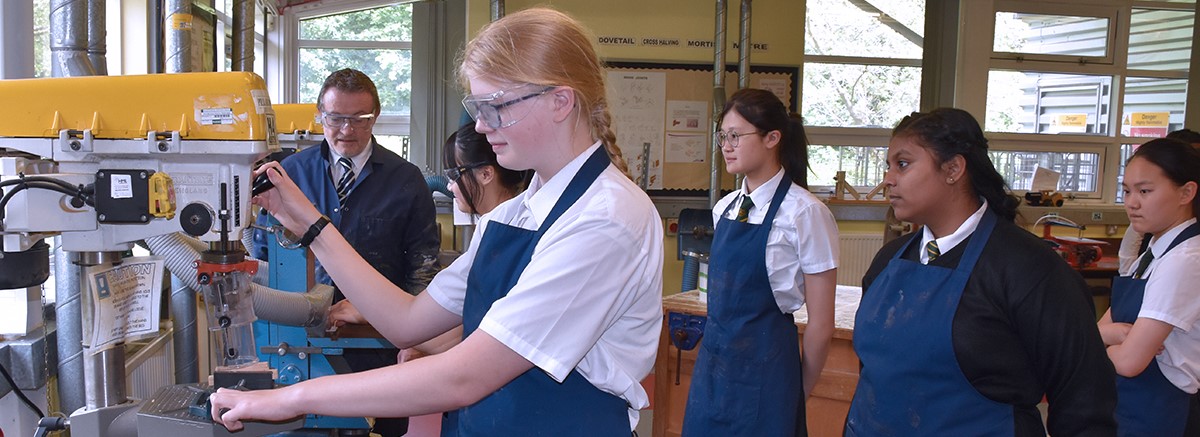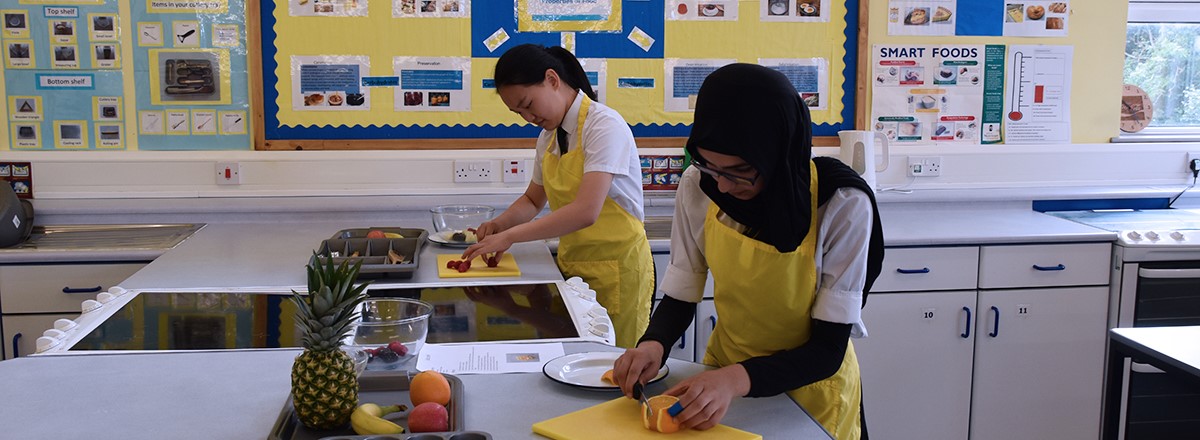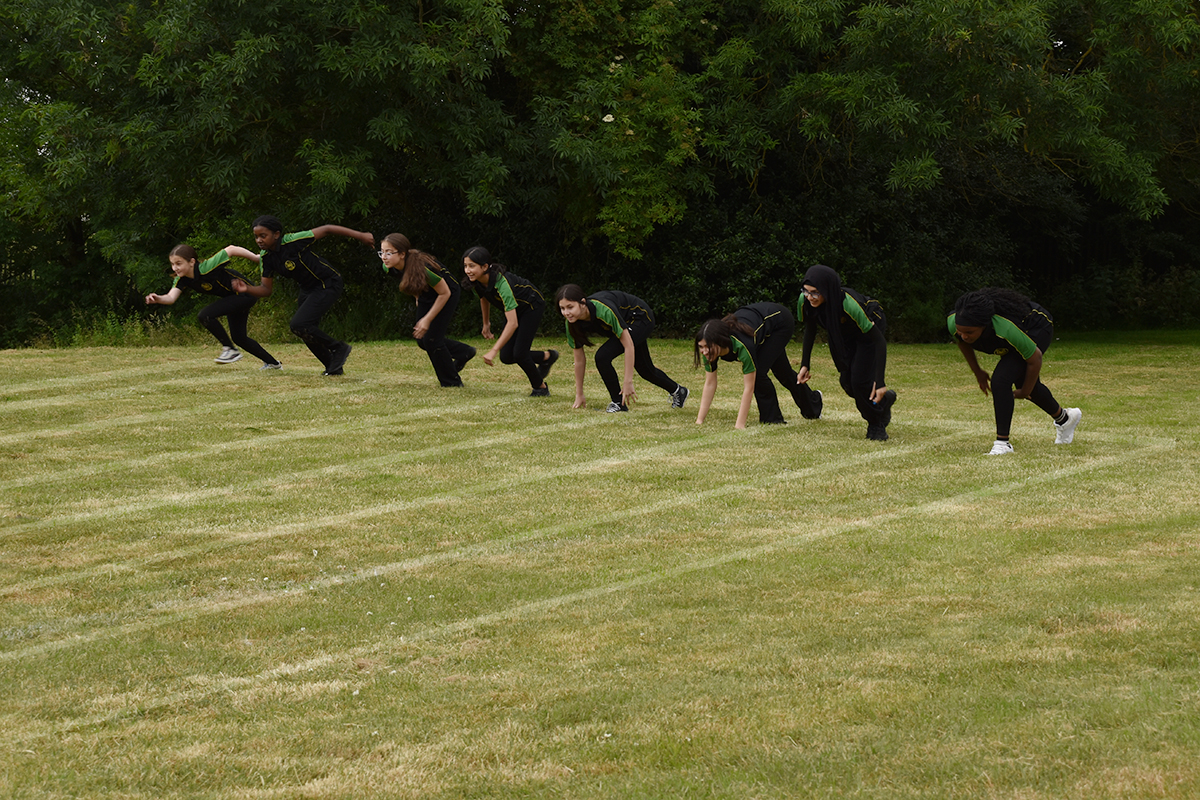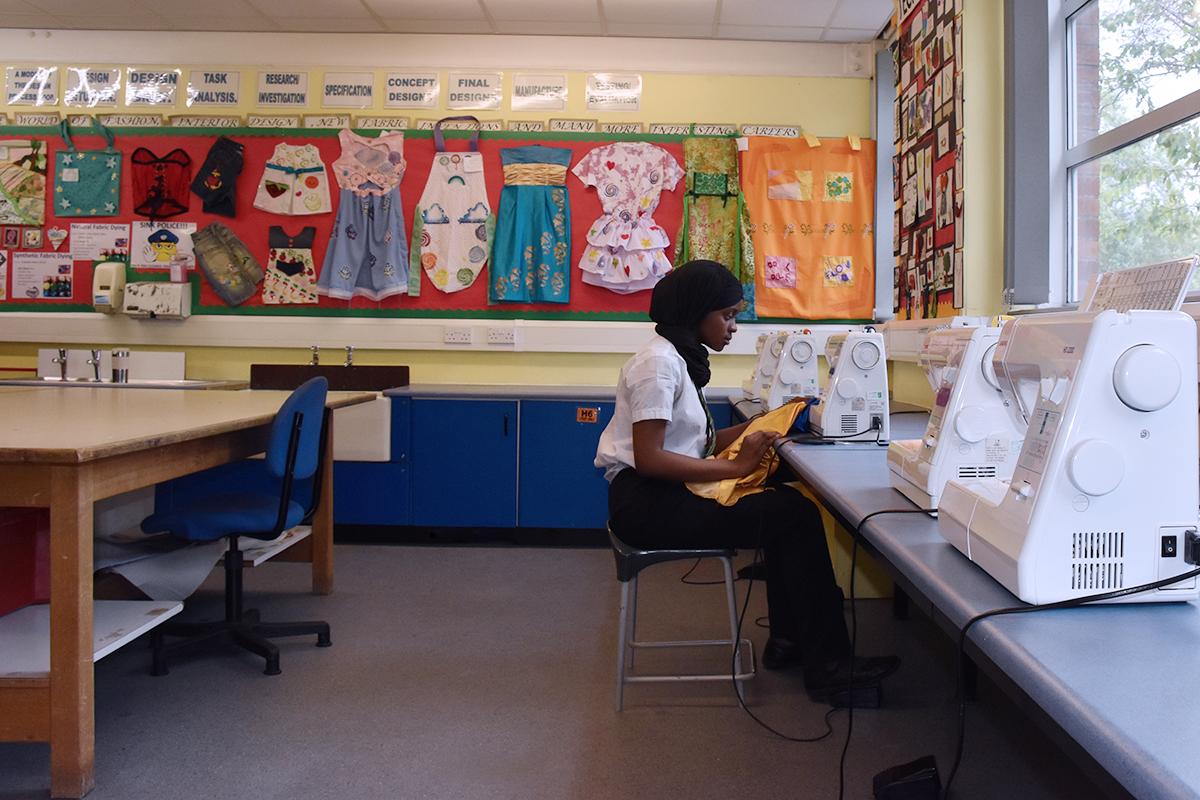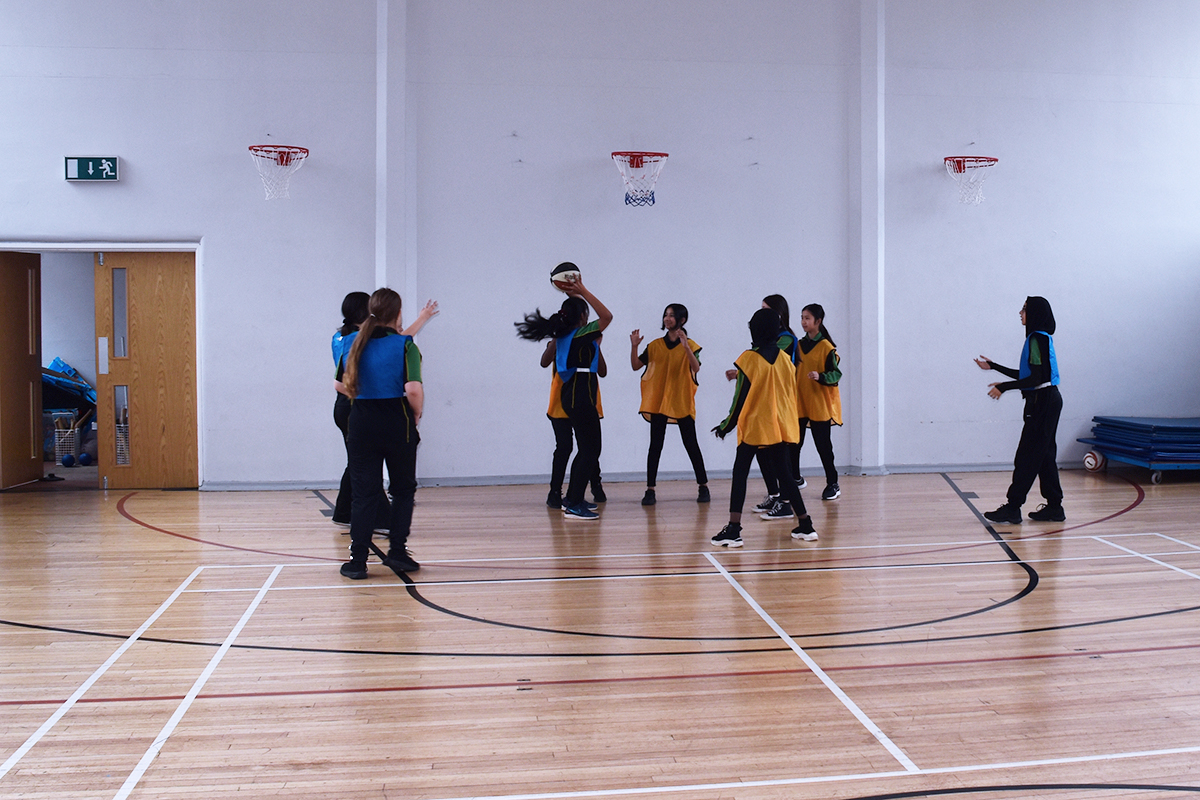Science
Key Stage 3 Curriculum
Students follow an enriching, balanced curriculum at Key Stage 3, which is rooted in the National Curriculum for Science. Our curriculum supports their transition from Key Stage 2 and increasingly develops the skills and techniques required for the GCSE and A level examinations in the Sciences. Although Biology, Chemistry and Physics are taught as ‘Science’ at KS3, each discipline is represented equally in our programme of study and effort is made to ensure that students understand which of the Sciences they are learning during each topic.
We promote high standards of scientific knowledge, scientific writing and we have many cross-curricular links with Mathematics, Geography, History and Art. Pupils develop the technical vocabulary during KS3 required to fully explain abstract concepts and, simultaneously we develop the practical skills required to conduct meaningful experiments safely. Students are assessed through SATs-style texts during every topic and students also complete a written assessment to allow them to demonstrate their learning and progression at different stages of a topic.
Students are encouraged to show interest in science-related questions and issues, pursue personal interests and career possibilities within science-related fields (e.g. take an interest in media reports on environmental issues, and seek out further information; express an interest in conducting scientific investigations of their own design; develop an interest in careers related to environmental sciences).
Year 7
Term 1 Topics
- Introducing science
- Particle model of matter
- Forces
- Cells and organisation Rock cycle
Term 2 Topics
- Atoms, elements, and compounds
- Light
- Skeletal and muscular system
- Space physics
Term 3 Topics
- Reproduction
- Pure and impure substances
- Matter
- Earth and atmosphere
Year 8
Term 1 Topics
- Nutrition and digestion
- The periodic table
- Electricity and magnetism
- Acids and alkalis
Term 2 Topics
- Gas exchange system
- Energy · Chemical reactions
- Health
Term 3 Topics
- Relationship in an ecosystem
- Sound
- Genetics and evolution
- Materials
Year 9
Term 1 Topics
- Photosynthesis
- Motion and pressure
- Energetics
- Electricity and magnetism
- Cellular respiration
Term 2 Topics
- Atomic structure and the periodic table
- Energy
Term 3 Topics
- Cell biology
- Bonding, structure, and the properties of matter
- Particle model of matter
Key Stage 4 Curriculum
Award: AQA GCSE Combined Science (Trilogy) 8464
CORE SUBJECT
COURSE CONTACT: Mrs R Kaur- HEAD OF SCIENCE Exam board website: https://www.aqa.org.uk/subjects/science/gcse/combined-science-trilogy-846
Course Content
All students are expected to study for the Trilogy Science qualification unless they have chosen the Triple Award course and met the entry criteria for it. Students complete the AQA GCSE Combined Science: Trilogy course over years 10 & 11. In Year 10, students will prepare for Paper 1 across all three sciences and complete required practicals to gain key scientific skills. In year 11, students continue to build on the concepts covered in Year 10 and prepare for Paper 2. Useful resources: https://www.kerboodle.com/users/login
Students can use their school login details to access textbooks following this link.
Other useful resources: https://senecalearning.com/en-GB/ https://www.bbc.co.uk/bitesize/examspecs/z8r997h https://www.freesciencelessons.co.uk/videos/
Assessment Details
In June of year 11 six papers will be taken, two in each of Biology, Physics & Chemistry. Each paper is a written exam of 1 hour 15 minutes duration, with Foundation and Higher tiers, and is worth 70 marks, making 16.7% of the total GCSE grade. The papers consist of multiple choice, structured, closed short answer and open response questions.
Biology
Paper 1: 1. Cell biology 2. Organisation 3. Infection and response 4. Bioenergetics
Paper 2: 5. Homeostasis and response 6. Inheritance, variation and evolution 7. Ecology
Chemistry
Paper 1: 1. Atomic structure and the periodic table 2. Bonding, structure, and the properties of matter 3. Quantitative chemistry 4. Chemical changes 5. Energy changes.
Paper 2: 6. The rate and extent of chemical change 7. Organic chemistry 8. Chemical analysis 9. Using resources.
Physics
Paper 1: 1. Energy 2. Electricity 3. Particle model of matter 4. Atomic structure
Paper 2: 5. Forces 6. Waves 7. Magnetism and electromagnetism
Assessments at Key Stage 3
Pupils will have end of term tests that will be used to monitor their progress as well as formative assessment throughout lessons. Early revision and seeking help outside of lessons is encouraged from the beginning. Useful resources: https://www.kerboodle.com/users/login
Students can use their school login details to access textbooks following this link.
A few useful websites are listed below: Seneca: https://senecalearning.com/en-GB/ KS3 Science Bitesize: http://www.bbc.co.uk/education/subjects/zng4d2p Educational quizzes: http://www.educationquizzes.com/ks3/ CGP revision guides and workbooks: https://www.cgpbooks.co.uk/Parent/books_ks3_science
Why Study This Course?
Preparing students thoroughly to progress to ‘A’ level studies in any of the three science disciplines. It is, therefore, an ideal qualification for anyone considering a career which requires science at ‘A’ Level. GCSE Double Award Science is also a valuable stand-alone qualification. Students who have successfully achieved high grades in Double Award Science could enter employment in laboratory work or use the qualification to access other progression routes to higher education.


